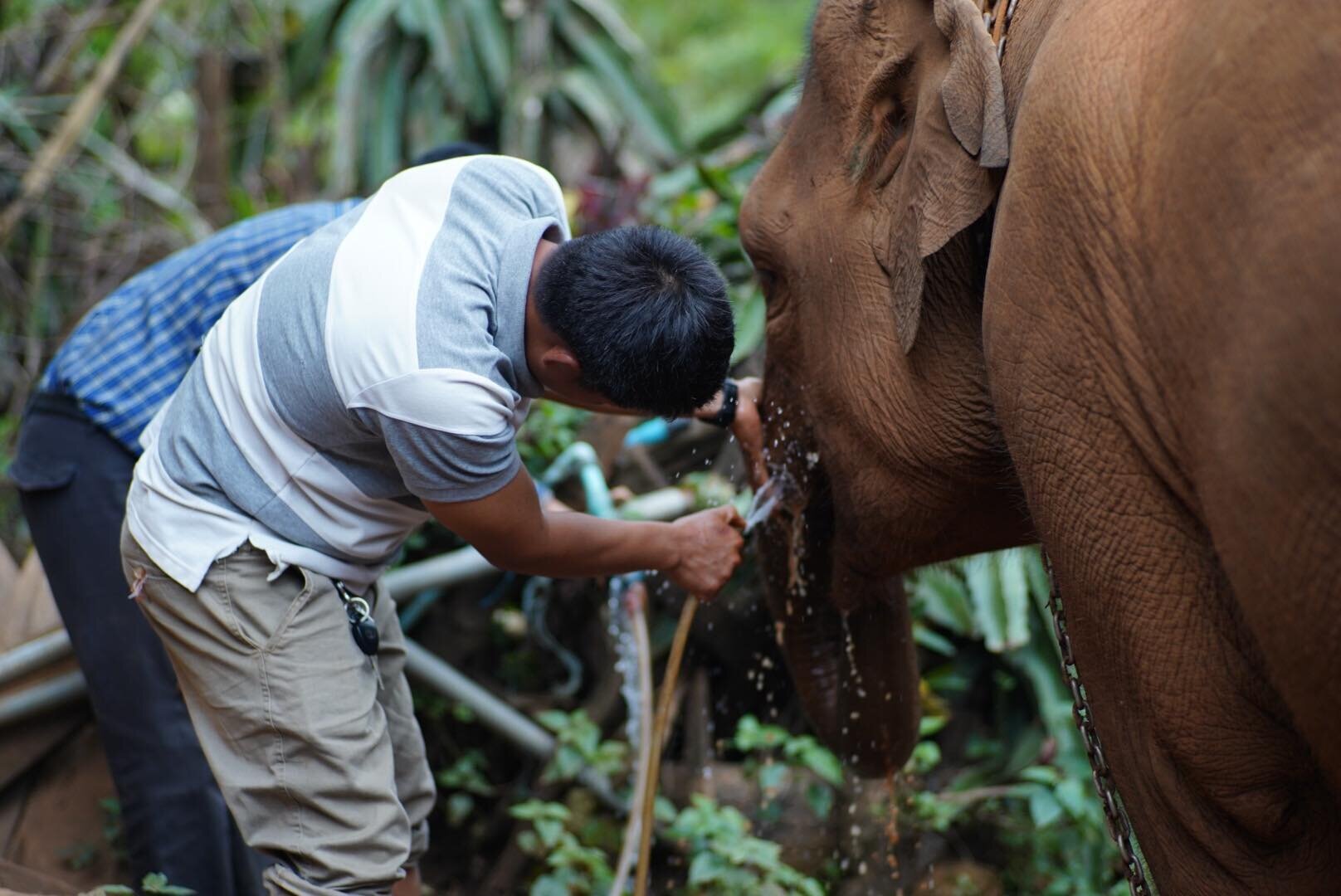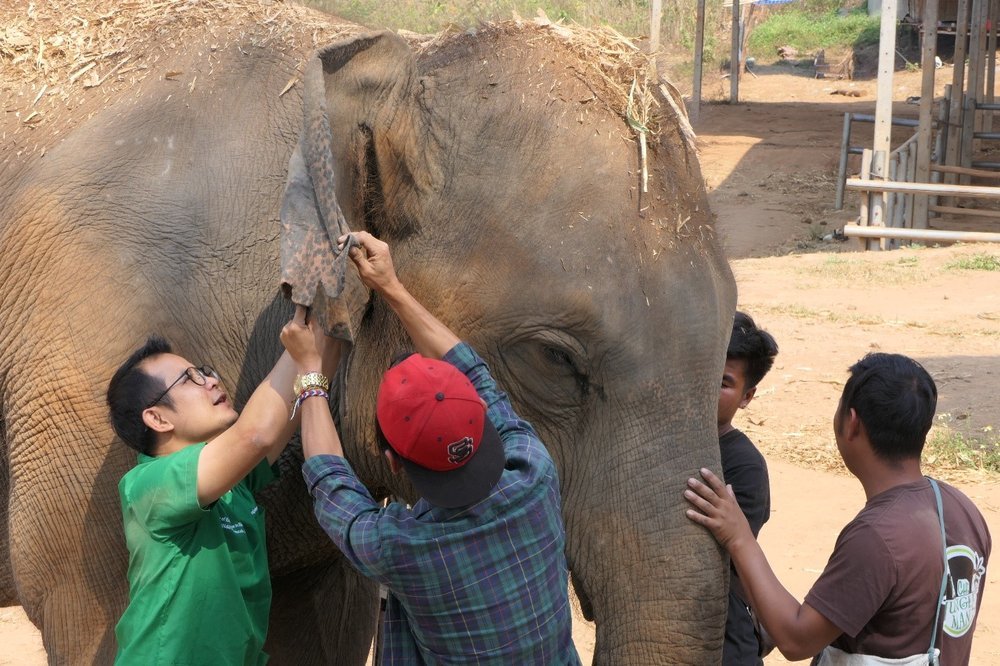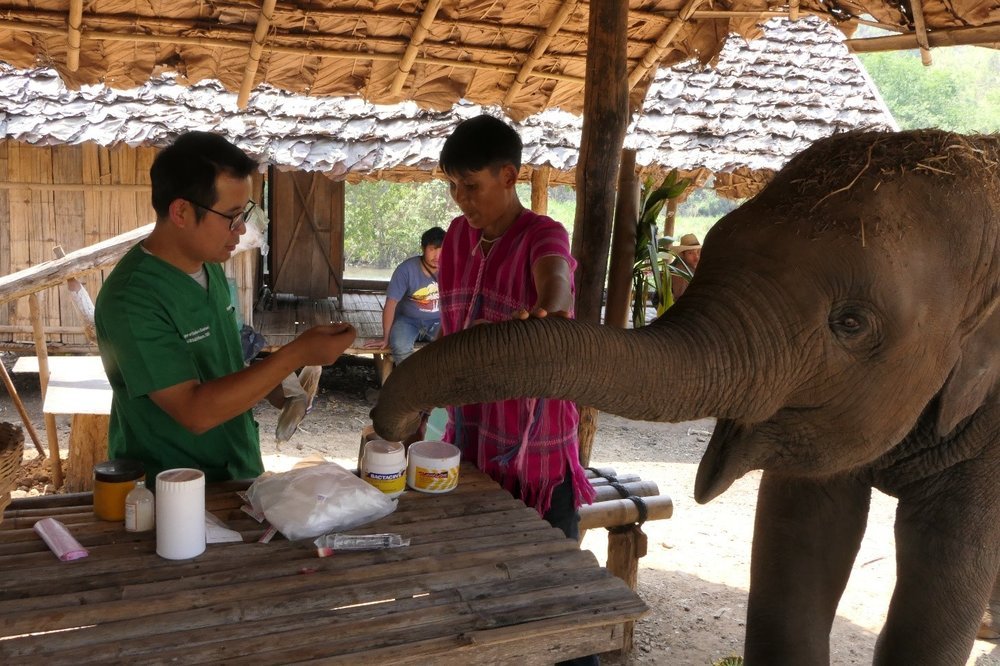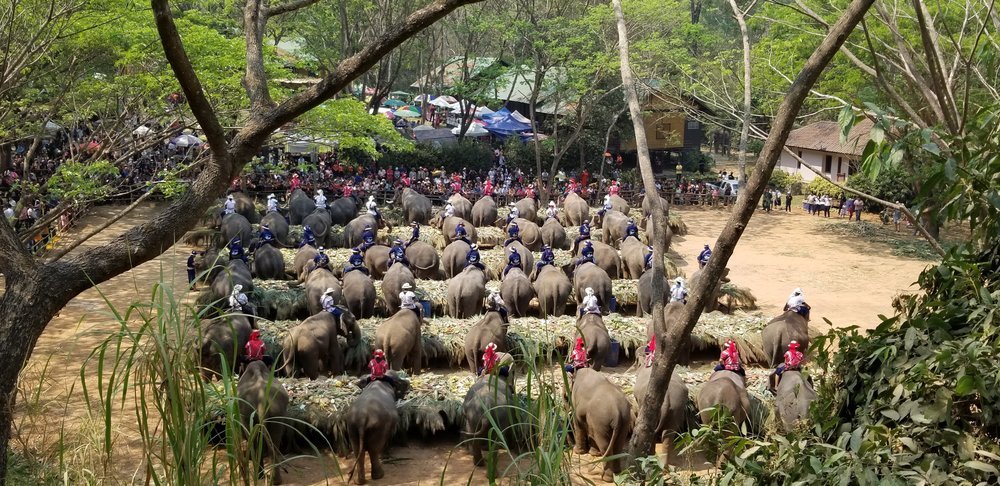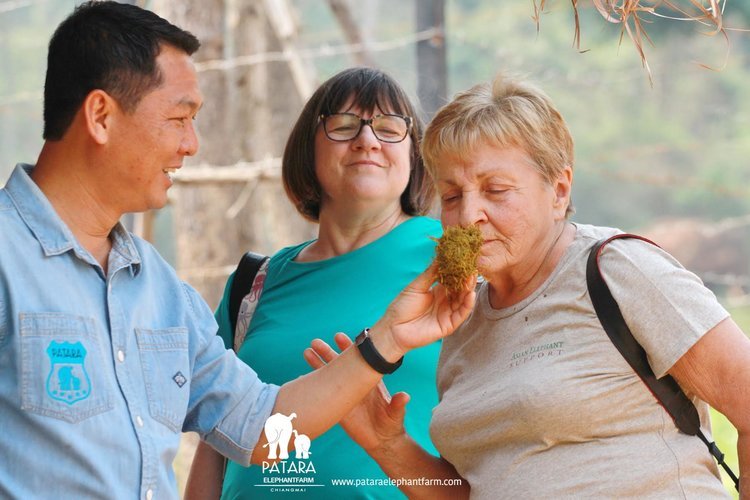Even through a new surge of COVID 19 in Thailand, our friends with the Chiang Mai University’s Mobile Vet Clinic, Drs. Khajohnpat and Siripat, continued their most important visits to elephants in need throughout Thailand.
The month of May was spent mainly in the Mae Tang district. Their first case on May 9 was to conduct a blood transfusion from 2 elephants for a third elephant who was suffering from anemia. The transfusion was successful and the elephant that accepted the transfusion began to respond to treatment and appears to be recovering.
(Left): Dr. Siripat with assistance from a Vet Nurse to collect blood from donor elephant
(Right) Elephant is receiving life-saving transfusion
On May 12 the doctors visited an elephant owner who was concerned about his elephant who was emaciated and had been losing weight over the course of a month. The veterinarians collected some secretions from the elephant’s trunk which tested positive for tuberculosis, a serious respiratory disease that affects humans and elephants. The doctors advised the elephant’s owner to monitor symptoms and to start planning for the very intense treatment for the disease. Unfortunately, 5 days later, the elephant passed away from the disease.
Critically ill elephant - while not all cases have happy endings, the veterinarians provide advise and care wherever needed
May 26, a national Thai holiday, found the doctors traveling to visit an elephant who was in abdominal distress. After examination, the veterinarians decided to administer fluids and pain relievers at about 2:30 in the afternoon. After this, they gave the elephant an enema and found dry, rough feces inside the elephant that was the probable cause of the distress. After inquiring with the owner further it was found that the elephant in question was stealing the other elephant’s hay overnight and consuming it.
The next day, the elephant still could not pass feces by herself. The doctors continued their fluids, pain relievers and enemas. Finally, by 8:00pm on May 27, the obstructive feces were pulled out and completely removed. The veterinarians suggested to the elephant owner that he begin chopping the grass he feeds to this elephant, and mixing it with water and supplements to prevent the consumption of dry food. They also suggest that the owner discontinue feeding older elephants hay, which can cause colic.
Although their job is not glamorous, and the endings are not always happy ones, the CMU Mobile Vet Clinic veterinarians and nurses continue their tireless work for the elephants of Thailand. To support their efforts, and efforts for elephants all across Asia, please visit our website www.asianelephantsupport.org to make a life saving donation.
Critically ill elephant - while not all cases have happy endings, the veterinarians provide advise and care wherever needed






































